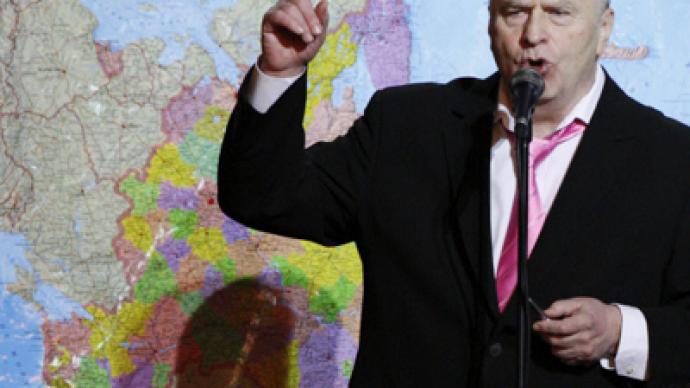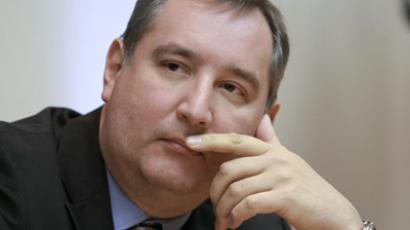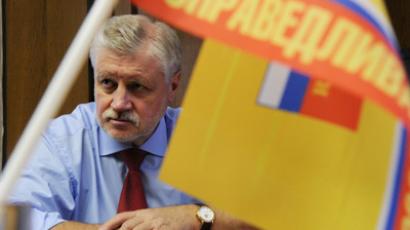Lib Dems play artistic nationalist card

The Liberal Democratic party has launched a new project titled Russian Atlantis, aiming to unite the “divided Russian people” and to revive “national culture and identity.”
The party calls on all citizens to organize actions in support of the Russian people. This could be an exhibition, a lecture, a seminar a flash mob, a rally, a motor rally or even a theatrical performance. Requirements to potential participants are put on specially created website http://zaldpr.ru/.“The Russian question has become particularly acute today,” reads the statement on the website. “Russians are in fact a divided people. Our task is to find a basis for its unification. The country will not develop without the Russian people. All peoples are equal, we do not demand any privileges, but Russians are the interlink that cements the country.”As the co-ordinator of the project, Viktoria Svistunova told Kommersant daily that many Russians have lost connection with their culture and identity and need to restore it. Participants should be over 18 and are required to conduct their activities strictly within the law. Although devoted to Russia, its traditions and culture, rallies and other activities may not necessarily be of political character. Every organizer is supervised by a curator who is supposed to assess the job.The first stage of the Russian Atlantis project will last till mid-November. Then the party will sum up the results and will choose winners. Authors and the best actions will be invited to a meeting with Liberal Democrats’ leader Vladimir Zhirinovsky in the State Duma. For those who cannot make it to Moscow there will be organized a video conference with the politician.For the last six months the Liberal Democratic party has come up with several “Russian initiatives”. For example, it called on the CIS and Baltic States to do their best to prevent provocations against ethnic Russians. The party also supported setting up the Russian Public Committee, which is supposed to focus on human rights and information fight against Russophobia. Earlier it insisted on elimination of ethnic republics within Russia. The initiative to make Russian a working language in Europe was also put forward by the Liberal Democrats. It should be noted that the rhetoric of “moderate nationalism” has been gaining momentum. At the beginning of September, Russia’s envoy to Russia Dmitry Rogozin, who has also become an informal leader of the Congress of Russian Communities movement, came up with similar ideas.“The Russian question is the central nerve of Russia’s modern politics,” and “not only do the country’s stability and integrity depend on the resolution of the Russian issue, but so does the vector of its historic development,” Rogozin stated.The Communist party has also paid attention to the “Russian issue”. It has initiated a public movement “for bringing closer Russian and other indigenous peoples of Russia” for the “good of the country.”














